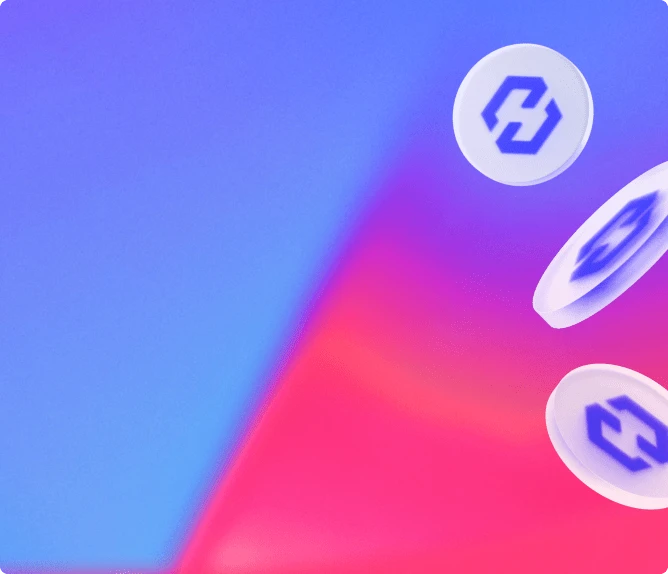Investing in crypto-assets carries risks of liquidity, volatility, and partial or total capital loss. Crypto-assets held are not covered by deposit and securities guarantee mechanisms.


Sign up for our newsletter
Partners
Coinhouse
Our accounts
Coinhouse
Coinhouse SAS with a capital of €210,000, RCS Paris 815 254 545, headquarters: 14 Avenue de l'Opéra 75001 Paris – support@coinhouse.com. Registered with the AMF for activities related to the purchase/sale of digital assets against legal tender, the exchange of digital assets for other digital assets, and the custody of digital assets for third parties under the registration number: E2020-001.
Coinhouse payment solutions
Company registered with the Paris RCS under the number 914 384 557, registered with the Prudential Control and Resolution Authority as a payment service agent under the number 727503 of the electronic money institution Treezor, headquartered at 33 Avenue de Wagram, 75017 Paris.
General conditions, disclaimers and legal documents.


30 March 2022

Open an account
Data from CoinShares shows a weekly inflow of $193 million in institutional crypto funds (compared to last week’s $47 million), with more than half of that figure going to Bitcoin alone ($98 million). Solana is also getting attention with a record $87 million. SOL-based funds now represent 36% of assets under management within institutional firms and is the second largest altcoin after ETH with inflows only achieving $10.2 million this week.
The multi-DEX, MEV-protected exchange CowSwap has completed the airdrop of its governance token. The airdropped tokens were worth about $100 million at the time of publication. A spinoff from Gnosis DAO, the project has raised $23 million via a token round, according to a release. GNO price notched a 50% gain after traders responded positively to the release of CowSwap token and the MEV-protection the protocol provides.
A Bored Ape Yacht Club NFT was sold for $115 (the floor price for a BAYC being $350,000). The situation is either a mistake with the owner confusing DAI for ETH, a hack or a manipulation from the owner to hide their net worth. The new buyer has claimed the 12,136 Ape tokens ($173,000) from the ApeCoin airdrop.
The London Bullion Market Association (LBMA) and the World Gold Council (WGC) announced Monday that they are collaborating to develop an “international system of gold bar integrity, chain of custody and provenance” that’s based on blockchain technology. Intended for supply chain management, the move is intended to help market participants verify the authenticity of their bullion.
The UK’s top financial regulator said on Wednesday it has extended the deadline for a select number of firms to be accepted in its new anti-money laundering cryptoasset registration. Companies must either cease trading or get approved as part of the FCA’s anti-money laundering regime falls on March 31. Blockchain.com and Wirex are the latest companies to withdraw from the registration process and will continue to operate in the UK from a diffrent country.
The European Parliament Committee on Economic and Monetary Affairs will vote thursday on an Anti-Money Laundering (AML) regulatory package that extends the requirement of financial institutions to attach information on the transacting parties to crypto assets. It would be difficult, if not impossible, for crypto service providers to verify an “unhosted” counterpart, such as a software or hardware wallet that users deploy on their own.
In India, the Maharashtra state government is in the process of rolling out 65 000 caste certificates to aid the process of delivering governmental schemes and benefits. The caste certificate issuance aims to target 1.1 Million poor residents of the Gadchiroli district. Furthermore, the verifiable certificates aim to deter forgery efforts by bad actors to falsely claim government-provided benefits for the underprivileged.
Last week the hacking team Rug.Tech discovered a huge bug on the OpenSea platform that made it possible to mint NFTs that appear to be created by any ETH wallet you choose, with no consent or notification required. OpenSea offered Rug’s team a paltry 3 ETH reward for a bug that would potentially cost the market hundreds of millions of dollars. The bug seems to now have been fixed.
Ronin, an Ethereum sidechain built to support the play-to-earn game Axie Infinity, has suffered the largest DeFi exploit to date. It resulted in the loss of 173,600 ETH ($590 million) and 25.5 million USDC. Five out of nine validators – whose purpose among others is the creation of transaction blocks – on the Ronin network were attacked and controlled during the incident, which was only discovered 6 days after the fact.
Two large arbitrage trades were made by MEV bots that targeted large stablecoin swaps. The bots targeted two stablecoin trades worth $24 and $10 million and ended with a profit of 157 ETH ($485 000). Frontrunning trades are frequent on the crypto market but rarely produce such profits.
Share the article

